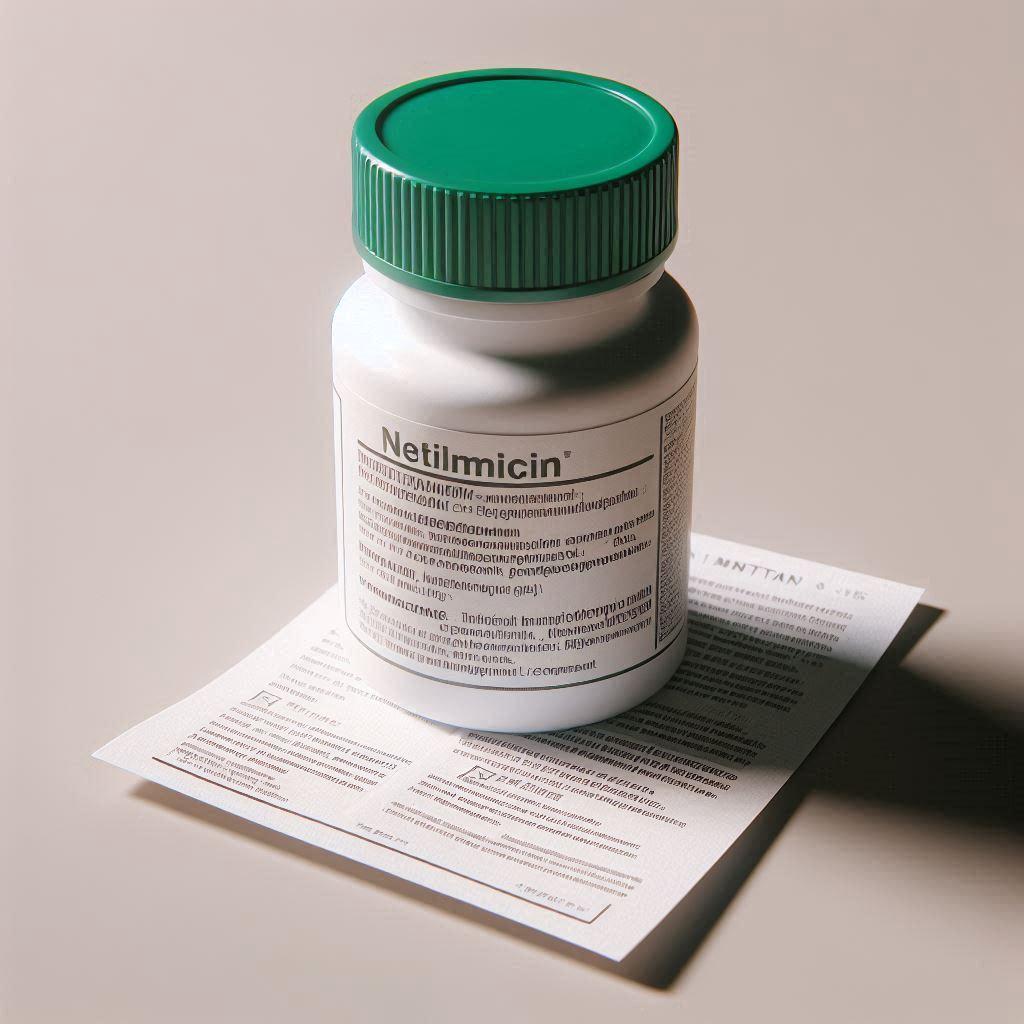
Netilmicin
Description:
Netilmicin is an aminoglycoside antibiotic used for the treatment of serious bacterial infections, particularly those caused by Gram-negative bacteria. It works by inhibiting bacterial protein synthesis, leading to the destruction of the bacteria. Like other aminoglycosides, it is used when infections are resistant to other antibiotics, but it is generally reserved for hospital settings due to the potential for toxicity.
Available Brand Names (examples include):
- Netromycin
- Neticin
- Nidicin
- Neltrex
- Tilox
Available Forms and Strengths:
- Injection (IV/IM): 50 mg/mL, 100 mg/mL, 300 mg/2 mL, 500 mg/2 mL
Uses:
- Treatment of serious Gram-negative bacterial infections like Pseudomonas aeruginosa, Escherichia coli, Proteus, and Klebsiella.
- Urinary tract infections (UTIs).
- Bacteremia (sepsis).
- Respiratory tract infections (pneumonia, particularly hospital-acquired).
- Intra-abdominal infections (e.g., peritonitis).
- Bone and joint infections.
Side Effects:
- Nephrotoxicity (kidney damage), especially with long-term use.
- Ototoxicity (hearing loss, balance disturbances), particularly affecting high-pitched sounds.
- Dizziness or vertigo.
- Neuromuscular blockade (muscle weakness, rare but serious).
- Local reactions at the injection site.
- Allergic reactions (rash, itching).
Dosage:
- Adults:
- IM/IV dose: 4-6 mg/kg/day divided into 2-3 doses depending on the infection severity.
- Duration depends on infection severity, typically 7-10 days.
- Pediatric:
- Weight-based dosing similar to adults but closely monitored for toxicity.
- Renal impairment: Requires dosage adjustment based on kidney function.
Contraindications:
- Hypersensitivity to netilmicin or other aminoglycosides.
- Renal impairment (dose adjustment required).
- Myasthenia gravis (may exacerbate muscle weakness).
- Pregnancy (use only if necessary, as aminoglycosides may harm the fetus).
Drug Interactions:
- Other nephrotoxic drugs (e.g., vancomycin, amphotericin B) – increased risk of kidney damage.
- Loop diuretics (e.g., furosemide) – increased risk of ototoxicity.
- Neuromuscular blocking agents – may increase the risk of muscle paralysis.
- NSAIDs – may increase the risk of nephrotoxicity.
Warnings/Precautions:
- Monitor kidney function (serum creatinine) throughout treatment, especially in patients with pre-existing kidney issues.
- Hearing tests should be done regularly to detect early signs of ototoxicity.
- Serum drug levels should be monitored (peak and trough) to ensure efficacy and minimize toxicity.
- Use cautiously in the elderly due to an increased risk of nephrotoxicity and ototoxicity.
- Avoid long-term use due to the risk of significant side effects.
Doctor’s Advice:
- Follow the prescribed dosing schedule and ensure that you complete the full course of antibiotics.
- Report any signs of hearing loss, dizziness, or changes in urine output to your healthcare provider immediately.
- Avoid using other nephrotoxic or ototoxic medications unless advised by a healthcare provider.
Would you like additional details on the drug’s mechanism of action or specific applications for certain infections?






